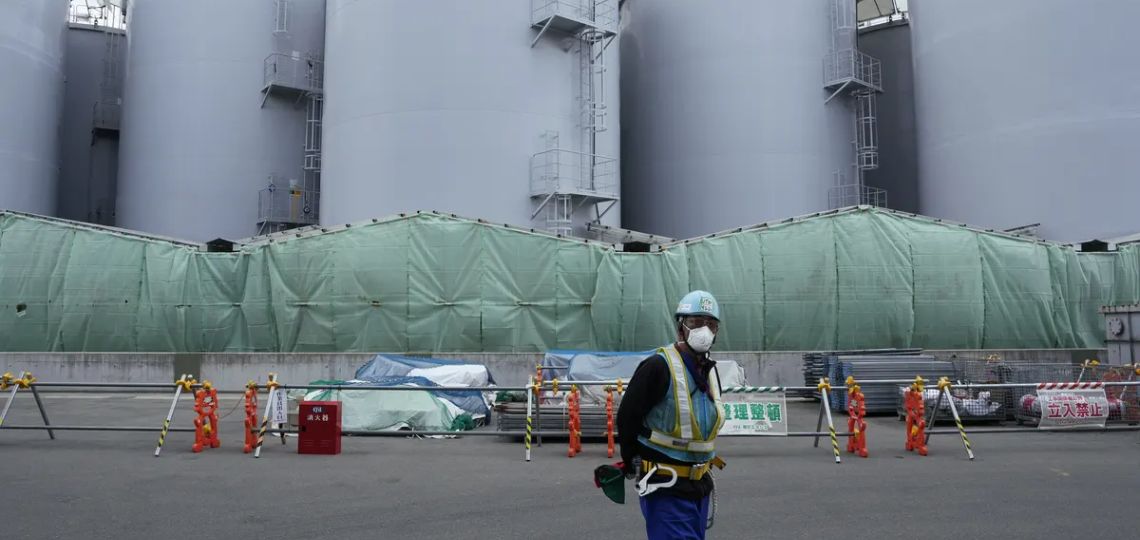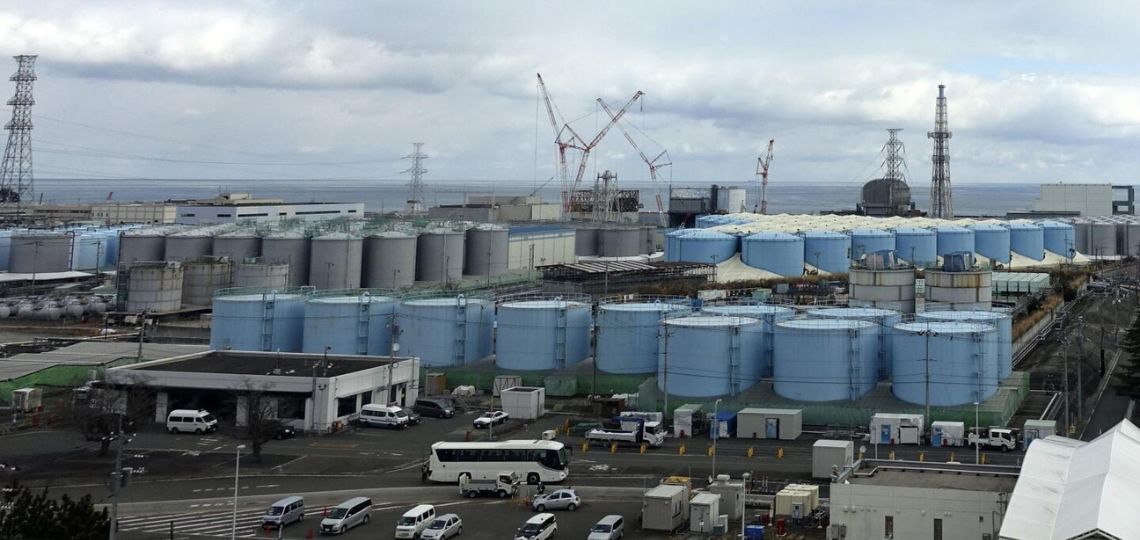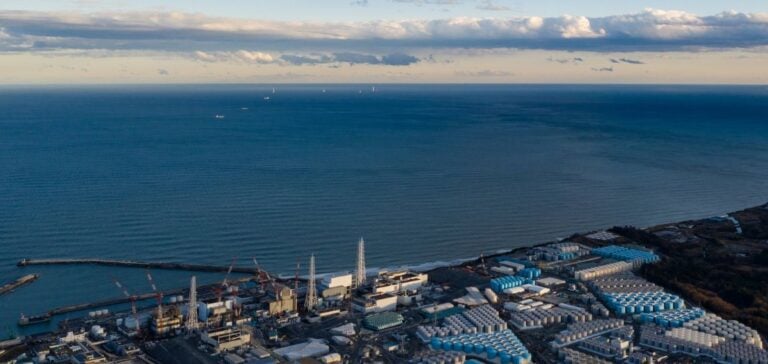The Fukushima nuclear power plant is back in the spotlight this March 11, 2021, 10 years after the disaster. At 11:46 a.m., Japan paused to pay tribute to the 22,000 victims, commemorating events whose consequences are still very much with us. Following the accident, Japan wanted to get rid of nuclear power for good.
However, the current government is aware that the country will not be able to decarbonize its economy without atomic energy. What’s more, since the disaster, the entire nuclear industry has had to guarantee the safety and control of its facilities. EDF and others are also committed to this objective.
Fukushima nuclear power plant: Japan remembers
On March 11, 2011, Japan was hit by a tsunami caused by a magnitude 9 earthquake. According to the IAEA, waves of over 15 meters are inundating the Fukushima Daiichi nuclear power plant, which is only resistant to earthquakes of magnitude 7. The cooling systems jammed and failed to prevent core meltdown, leading to the explosion of the plant’s boiling water reactors.
Over 160,000 inhabitants fled as radiation spread through the air and water. These displacements in the confusion claimed 2,000 new victims. Japan’s Prime Minister at the time, Naoto Kan, even feared he would have to evacuate Tokyo’s 14 million inhabitants.
Japan marked for the rest of its history
The Japanese government will have to spend USD 300 billion to rebuild the Tohoku region, devastated by the tsunami. The contaminated zone around the Fukushima nuclear power plant remains off-limits due to high radiation levels. Its dismantling still raises many questions and is expected to take decades.
Since the Fukushima nuclear accident, nuclear reactors have been cooled with water that comes out loaded with radioactive components. The contaminated water is then stored on site by the Tokyo-based electricity company Tepco and its partners, such as Orano. The contaminated water, which has already reached a million cubic meters, is expected to saturate the reservoirs as early as 2022.
“Fukushima is marked for the rest of its history by nuclear power,” says Kiyoshi Kurokawa, head of the Fukushima nuclear accident investigation.
As a result of the accident, public opinion massively rejected this energy source. This presents decision-makers with a major dilemma.

Hiroshima, Nagasaki, Daigo Fukuryu, then Fukushima
The outlook for public opinion on nuclear power remains poor. Indeed, the country’s painful relationship with the atom is deeply rooted in its history. The bombing of Hiroshima and Nagasaki, followed by the contamination of Daigo Fukuryu by radioactive fallout, are lasting historical traumas.
What alternative to the Fukushima nuclear power plant?
The tsunami and explosion at the Fukushima Daiichi nuclear power plant have caused lasting damage. They convinced the government of the day that the risks of nuclear power far outweighed its benefits. Immediately after the Fukushima nuclear disaster, Japan shut down its 54 reactors, around a third of which were permanently scrapped.
The country has decided to turn away from nuclear power in favor of renewable energies (RE). Fukushima prefecture is becoming a testing ground for the energy transition, with the government joining forces with local communities and businesses. In 2012, the prefecture set its sights on 100% renewable electricity by 2040, reaching 35% of its energy mix by 2019.
100% RE, a utopia
Despite our best efforts, it seems unlikely that renewable energies will be able to replace nuclear power in the country’s energy supply. Indeed, Japan lacks flat land for solar panels, and the depth of the oceans increases the cost of offshore wind power. According to the Minister of the Economy, Mr. Kajiyama, it will be difficult for Japan to cover more than 60% of its needs from renewable energy.
In the first half of 2020, renewable energies supplied 23% of the country’s electricity. Japan is therefore a long way behind Germany, which is also nuclear-free and whose energy mix is 46% RE.

10 years on, time for the Fukushima nuclear power plant to return?
Conservative Prime Minister Yoshihide Suga has promised the Japanese people carbon neutrality by 2050. However, with 70% of the country’s energy mix made up of fossil fuels, most of which are imported, this goal is utopian. For Mr. Suga, as for his predecessor Shinzo Abe, Japan’s energy transition means a return to nuclear power.
Japan’s nuclear program is therefore slowly getting back on track, with the Takahama reactors due to come back on stream shortly. Despite being 40 years old, the regulatory authority has extended their use for a further 20 years.
But the deadlines Japan has set itself for achieving its decarbonization targets already seem too short. To reduce emissions by just 26% by 2030, Japan would have to restart all its reactors and build more. Otherwise, only 18 reactors will be in service in 2050, even if the life of existing reactors is extended.
53% of Japanese oppose restarting reactors
Society’s support for widespread nuclear power remains uncertain. This is why many Japanese authorities are reluctant to approve the restarting of reactors. Some courts have also approved requests for the temporary closure of operating reactors.
It has to be said that while the mass anti-nuclear protests observed after March 11, 2021 have faded, mistrust persists. An Asahi survey revealed in February that 53% of Japanese are opposed to restarting the reactors, against 32% in favor. In Fukushima, only 16% supported restarting the units.
At the political level, the opposition is also up in arms against the return of nuclear power. Critics point to cost, insecurity and the problems of storing nuclear waste as the main drawbacks.
“Those who talk about atomic energy are people from the ‘nuclear village’, who want to protect their interests,” says former Prime Minister Naoto Kan.

UN says radiation impact minimal
Yet the latest UNSCEAR report states that the meltdown of the reactors has not harmed the health of the local population. According to the UN organization, there is no credible evidence of excessive birth defects or premature deliveries linked to radioactive releases. It also denies the link between the accident and the rise in thyroid cancer among exposed children.
UNSCEAR has also assessed information on transfers of radioactive materials released into terrestrial, freshwater and marine environments. It therefore considers that the impact on flora and fauna remains low. The report does, however, point out that adverse effects on certain species have been observed in areas of increased radiation.
EDF, expert in nuclear safety
Nuclear power generates 10% of the world’s electricity, compared with 18% in the mid-90s. The construction of new nuclear power plants is lagging far behind the pace of closures, according to the IEA.
Nevertheless, nuclear power remains an important solution for achieving global climate objectives. The industry is therefore trying to bounce back by providing guarantees of radiation protection and nuclear safety. The French sector is particularly dynamic in this area, as evidenced by the numerous projects piloted by EDF.
METIS project: channelling knowledge about seismic risk
The EDF Group’s METIS project aims to consolidate scientific knowledge of the seismic risk posed by power plants. The project is led by an international consortium comprising 13 European partners and three American and Japanese organizations. With a budget of €5 million, it aims to improve and standardize seismic safety assessments for power plants.
The results of this project will enable a better understanding of risks in the European context. METIS will then help optimize the use of existing and future reactors, ultimately boosting the competitiveness of the nuclear industry.
The digital reactor, towards augmented nuclear power plants
EDF is also piloting an association of eight organizations that is concentrating skills to develop the digital reactor.
According to Benoît Levesque of EDF’s R&D department, this reactor is a “digital and functional replica of a nuclear power plant”.
It will enable operators to train in virtual reality to carry out maintenance or operating tasks in a nuclear reactor. At the same time, engineers will be able to study the behavior and environment of the reactors. Ultimately, these studies will help prepare the population for as many eventualities as possible. This is an essential step forward for a disaster that Kiyoshi Kurokawa describes as “profoundly human in origin”.






















